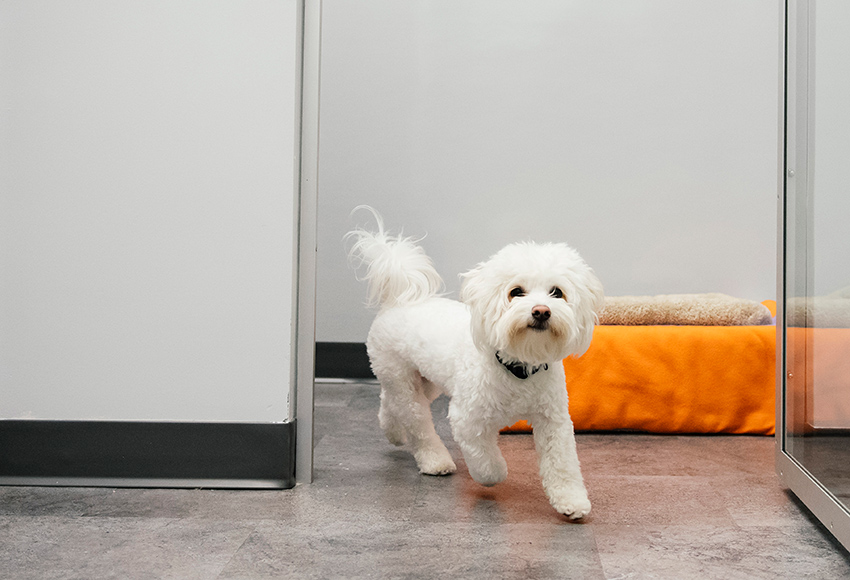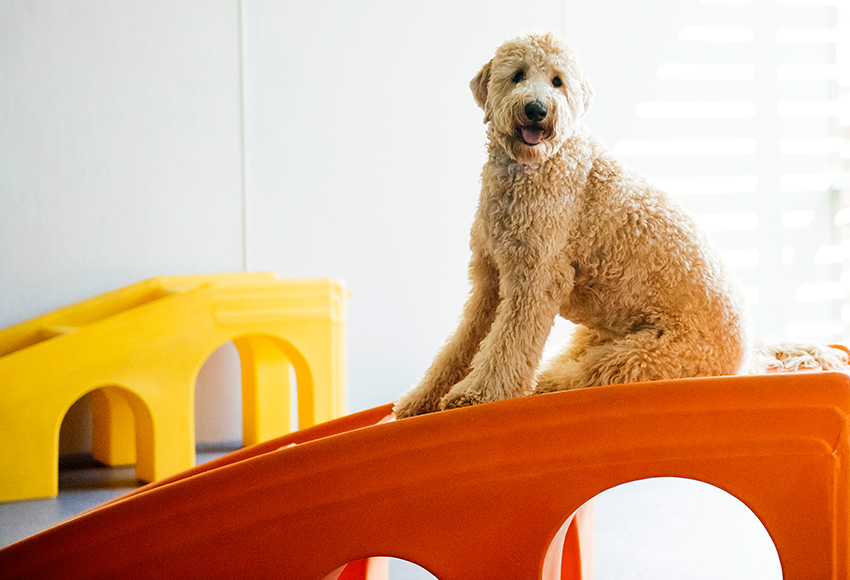Back Yard Bacteria – Courtesy of Fido
July 12, 2018

If you’re anything like us at home. The rules of cleaning up dog poo are different than in our dog daycare facility. At home we aren’t as obsessive about cleaning up behind our dog. Here’s some reasons why we’re considering a change:
Dog Waste
Cleaning up dog waste from a backyard is an important part of both yard and pet maintenance. Removing dog waste promptly from areas where people work, move and play will reduce the chances of stepping in it and spreading bacteria. What kind of bacteria you ask? Doody Calls, a Virginia based pet waste management company (http://www.doodycalls.com/resources-toxic-dog-waste/) paints a pretty scary picture of what could be lurking in your lawn.
It has been estimated that a single gram of dog waste can contain 23 million fecal coliform bacteria, which are known to cause cramps, diarrhea, intestinal illness, and serious kidney disorders in humans. The EPA even estimates that two or three days’ worth of droppings from a population of about 100 dogs would contribute enough bacteria to temporarily close a bay, and all watershed areas within 20 miles of it, to swimming and shell fishing.
Dog feces are one of the most common carriers of the following diseases:
- Whipworms
- Hookworms
- Roundworms
- Tapeworms
- Parvo

- Corona
- Giardiasis
- Salmonellosis
- Cryptosporidiosis
- Campylobacteriosis
The thing about persistently disposing of stools improperly (or not at all) is that it kicks off a harmful cycle that can affect your whole family—including your pet.
Dog Droppings
According to the U.S. Centers for Disease Control and Prevention (CDC), pet droppings can contribute to diseases animals pass to humans, called zoonoses. When infected dog poop is deposited on your lawn, the eggs of certain roundworms and other parasites can linger in your soil for years. Anyone who comes into contact with that soil—be it through gardening, playing sports, walking barefoot or any other means—runs the risk of coming into contact with those eggs; especially your dog.
Some of the hard-to-pronounce parasites your lawn could harbor include Cryptosporidium, Giardia, Salmonella, as well as hookworms, ringworms and tapeworms. Infections from these bugs often cause fever, muscle aches, headache, vomiting, and diarrhea in humans. Children are most susceptible, since they often play in the dirt and put things in their mouths or eyes.
Options for you to consider
- Dog poo bags at home – just follow your dog out and collect the waste immediately for disposing. It’s usually pretty quick and consistent in the morning and night.
- Get a pooper scooper and have a separate waste container for poo storage. It’s quick and convenient. Time is of the essence though. It has to be done quickly.
- Even a daily inspection and pick up is a better option than a weekly (or rarely) back yard inspection and pick up.
- Create a daily cleaning schedule and build it into your routine.
Caring for your dog has many dimensions and as we like to say you have to love the whole dog, not just the front half.






